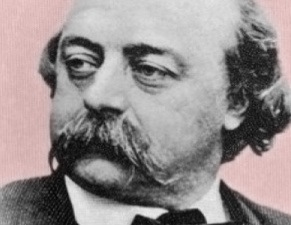
At the time of its publication Madame Bovary was attacked by a chorus of critical voices for its painfully realistic depiction of bourgeois life. After its serialized appearance in La Revue de Paris in 1856, the novel was taken to court on account of its obscenity. Yet for Gustave Flaubert this public affair was far less painful than the private ordeal of the editorial process. His good friend, Max du Camp, and his publisher, Leon Laurent-Pichat, called for extensive cuts to Madame Bovary. At one point they convinced Flaubert to excise the curtained carriage scene for their magazine’s publication. But when Camp wrote to Flaubert that he had, “buried [his] novel beneath a mass of things done well, but useless,” Flaubert was infuriated. He dispatched this letter Laurent-Pichat in response to the proposed cuts.
To Léon Laurent-Pichat
[Croisset, between December 1 and 15, 1856]
Dear Friend,
First, thank you for pointing out the difference between your personal and your editorial attitudes concerning my book; I therefore now address not the poet Laurent-Pichat, but the Revue, an abstract personality whose interests you represent. This is my reply to the Revue de Paris.
1. You kept the manuscript of Madame Bovary for three months, and thus you had every opportunity, before beginning to print the work, to know your own mind regarding it. The alternatives were to take it or leave it. You took it, and you must abide by the consequences.
2. Once the agreement was concluded, I consented to the elimination of a passage which I consider very important, because you claimed that to print it might involve you in difficulties. I complied gracefully, but I will not conceal from you (and now I am speaking to my friend Pichat) that I at once began to regret bitterly ever having had the idea of publishing. Let us speak our minds fully or not at all.
3. I consider that I have already done a great deal, and you consider that I should do still more. I will do nothing; I will not make a correction, not a cut; I will not suppress a comma; nothing, nothing! But if you consider that I am embarrassing you, if you are afraid, the simple thing to do is to stop publication of Madame Bovary. This would not disturb me in the slightest.
Now that I have finished addressing the Revue, let me point out one thing to my friend:
By eliminating the passage about the cab you have not made the story a whit less shocking; and you accomplish no more by the cuts you ask for in the sixth installment.
You are objecting to details, whereas actually you should object to the whole. The brutal element is basic, not incidental. Negroes cannot be made white, and you cannot change a book’s blood. All you can do is to weaken it.
I need scarcely say that if I break with the Revue de Paris I shall nevertheless retain friendly feelings for its editors.
I know how to distinguish between literature and literary business.
From The Selected Letters of Gustave Flaubert. Translated and Edited by Francis Steegmuller. FSG: New York, 1953.
FURTHER READING
Here’s the Guardian’s review of Lydia Davis’s new translation of Madame Bovary.
You can explore Flaubert’s innumerable drafts and rewrites here at the University of Rouen’s website.


